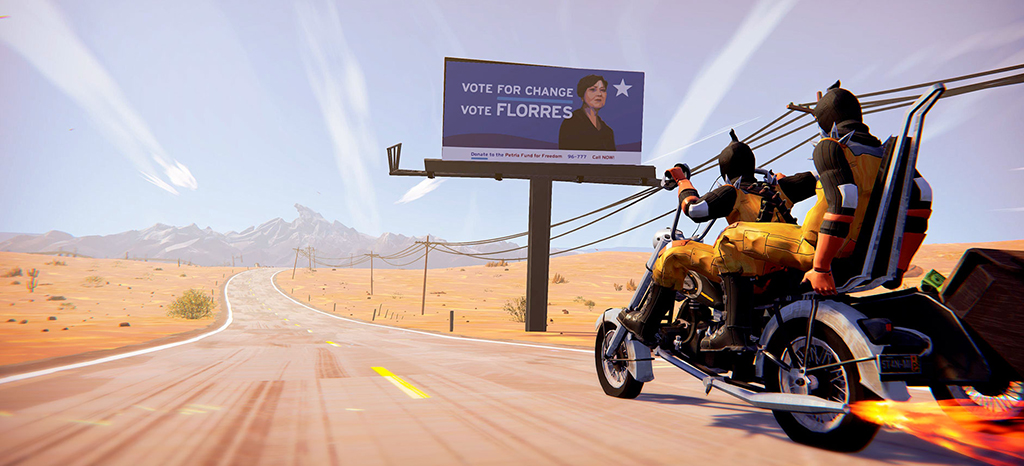
Road 96 is the latest game from DigixArt, the developers of beloved games 11-11 Memories Retold and Lost in Harmony, and a studio founded by Yoan Fanise, one of the leads on the acclaimed Valiant Hearts. Road 96 was first released in 2021 on PC and Switch, and is an adventure game described as a procedurally-based road trip. Players attempt to cross the border to safety during a time of crisis in the fictional country, Petria.
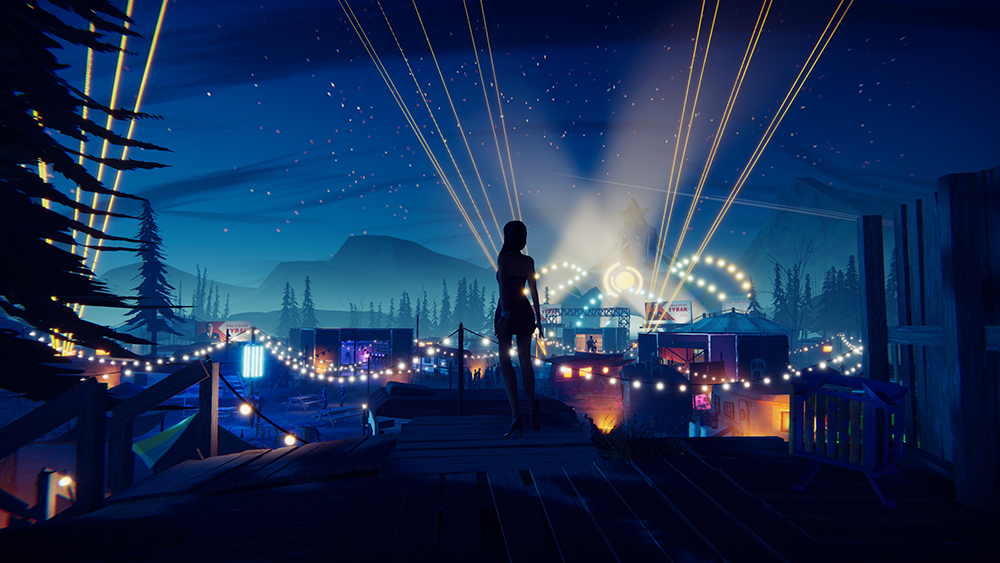 Typically, ‘procedurally-based’ means ‘AVOID’, but in Road 96’s case it works really well, resulting in a smooth narrative that sometimes leads to hilarious situations — such as being part of a high-stakes quiz show run by bandits in need of couples therapy — but more often dramatic ones, as death is no stranger along the road. We were able to catch up with Fanise, ahead of the recent PlayStation and Xbox release of Road 96, to find out about how the game came to being, and the inspirations behind it.
Typically, ‘procedurally-based’ means ‘AVOID’, but in Road 96’s case it works really well, resulting in a smooth narrative that sometimes leads to hilarious situations — such as being part of a high-stakes quiz show run by bandits in need of couples therapy — but more often dramatic ones, as death is no stranger along the road. We were able to catch up with Fanise, ahead of the recent PlayStation and Xbox release of Road 96, to find out about how the game came to being, and the inspirations behind it.
The overarching narrative for Road 96 is about Petria, a country under a tyrannical dictatorship causing many teenagers to try and flee over the border before the upcoming election. Along the way you, the player, inhabit the shoes of many of these teens, and can influence the political landscape by encouraging people to vote or rebel (sometimes violently) to try and change the country. But the only guarantee of safety is crossing the border via the titular Road 96.
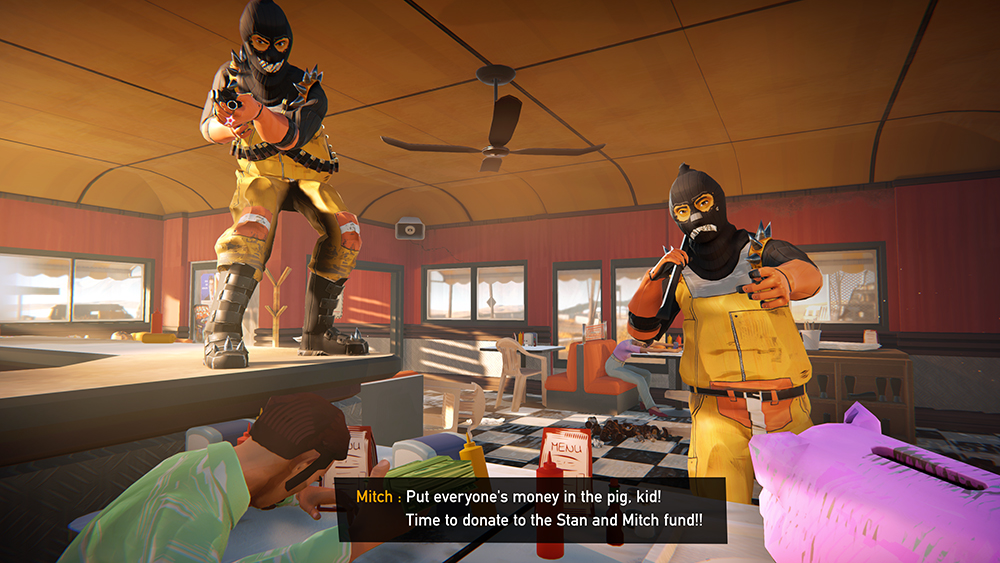 As Fanise explains, the inspiration for such a game was influenced by a real journey he took through Europe’s political past:
As Fanise explains, the inspiration for such a game was influenced by a real journey he took through Europe’s political past:
“[The inspiration] was the blend of different wishes: making a road trip, having a procedural structure, and talking about something that matters.
“The core subject was really set in stone after my trip to 11 bits studios in Poland. The things they experienced during the Iron Curtain period impacted me so much that it was obvious to treat this issue. We then started to build what would become Petria’s nation, a mix of the worst of all regimes, and today’s events show that very sadly this topic is so important and that no nation can consider itself out of potential trouble. True democracy and peace is a fragile thing we should cherish and nurture.”
The first time the public caught a glimpse of Road 96 was during the 2020 Game Awards, when its first trailer premiered.
The reception was fantastic, with many people praising its concept, the clear passion, and great soundtrack (which is definitely delivered on in the final game). As Fanise describes, it was hard work to get the trailer ready on time, but the results were worth it:
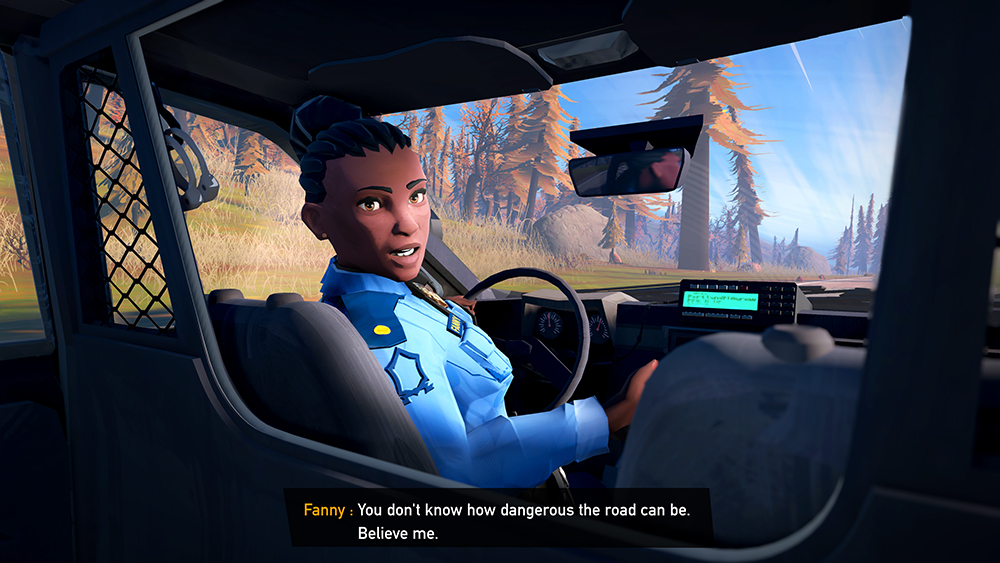 “It was thrilling; in fact, we didn’t know exactly if the trailer would show up. We knew only two months before that we had this opportunity, so we dedicated half of the team to this trailer that was from in-game locations. And when it showed up, we were so excited, it was unbelievable. I activated the Steam page, the website, and it almost instantly went out of service due to too many connection requests. I was in panic mode, but it came back after two minutes. The social networks were on fire, we couldn’t imagine such a huge impact.
“It was thrilling; in fact, we didn’t know exactly if the trailer would show up. We knew only two months before that we had this opportunity, so we dedicated half of the team to this trailer that was from in-game locations. And when it showed up, we were so excited, it was unbelievable. I activated the Steam page, the website, and it almost instantly went out of service due to too many connection requests. I was in panic mode, but it came back after two minutes. The social networks were on fire, we couldn’t imagine such a huge impact.
“The mission to make the game visible was done, now we had to make as good as we could to not deceive the expectations. That was a good pressure.”
The pressure paid off, as the most impressive thing is the trailer isn’t even able to fully encompass the scope of the game. The player isn’t just one character, they’re many, and each one will make it to the border or literally die trying. The stakes are often high in the game, and even if you manage to have a smooth ride to the border, you can still be caught just short of the line and lose it all — only to rise up again in someone else’s shoes. That’s not to say time is wasted if you fail — your actions impact the characters you meet along the way, along with the wider story of what happens to Petria. Choice is an important part of the game, as Fanise says:
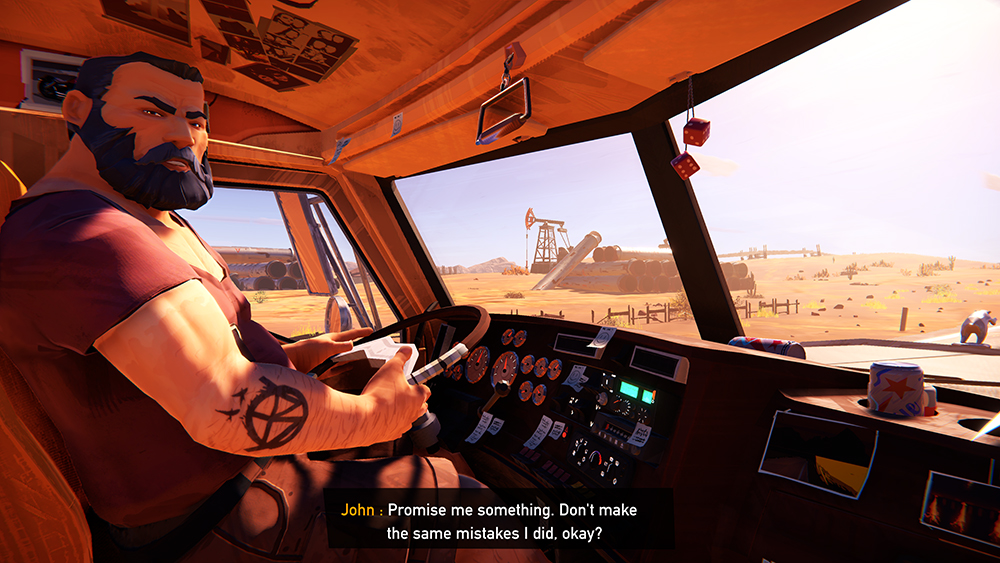 “We hope that players will enjoy the narrative freedom of the game, the real choices and their impacts. The feeling of being on the road, on a difficult journey to the border, but also with good and funny encounters. We really tried to create interesting and deep characters.”
“We hope that players will enjoy the narrative freedom of the game, the real choices and their impacts. The feeling of being on the road, on a difficult journey to the border, but also with good and funny encounters. We really tried to create interesting and deep characters.”
The road trips themselves are split between different styles of encounters, either while travelling on the road — such as through hitchhiking, on the bus, or other means — and the pit stops at places like diners or campgrounds. In my time with the game, the narrative always felt smooth and I would have assumed it was all meticulously designed if I hadn’t already known it is procedural. It wasn’t an easy experience to create though.
“[The most difficult part] was obviously the narrative structure. This was only possible if we don’t really focus on the character you play. And if you take a writer’s perspective, it is very difficult to put that aside, and only build your story on Non-Playable Characters. It took time for us to adapt to this, but the impact on the story makes it even more unique.
“We turned a constraint into an advantage.”
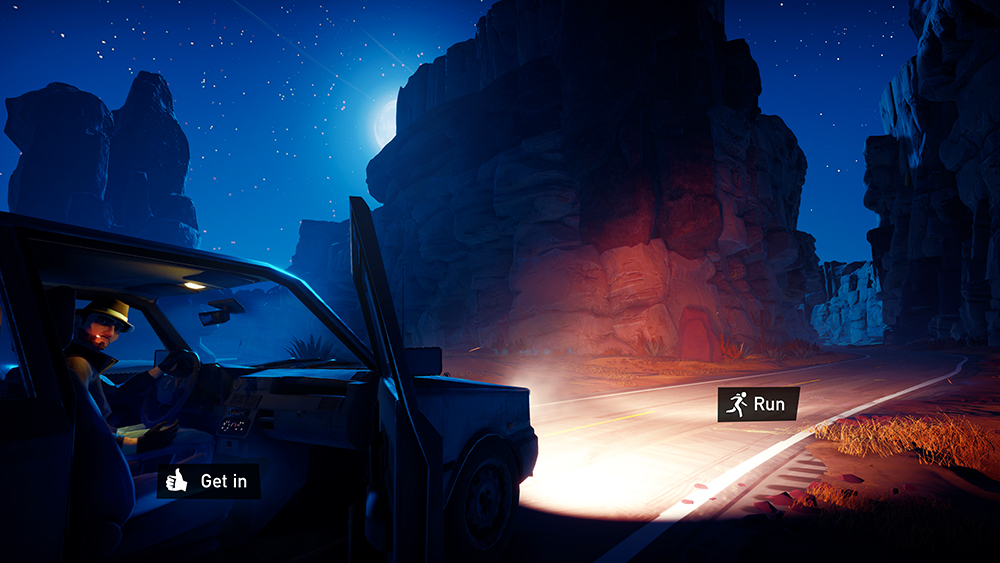 Road 96 has a variety of characters, some friendlier than others, that you’ll meet along the many road trips you make to reach the border. Some characters will point a gun to your head if you’re not careful with your words, leading to some nail-biting encounters as you attempt to negotiate a peaceful outcome (I certainly failed more than once).
Road 96 has a variety of characters, some friendlier than others, that you’ll meet along the many road trips you make to reach the border. Some characters will point a gun to your head if you’re not careful with your words, leading to some nail-biting encounters as you attempt to negotiate a peaceful outcome (I certainly failed more than once).
The character-focused narrative is ultimately what makes the game work. It’s easy to assume that constraints like this would have a major influence on the overall design of the game. But as Fanise says, it managed to stay true to the original vision:
“It is quite close to what we had in mind in fact, we did a lot of research and prototypes to get this very specific recipe. The structure of a pool of things, interacting with each other, and not using typical branching was a brand new way of developing a story… I mean stories.
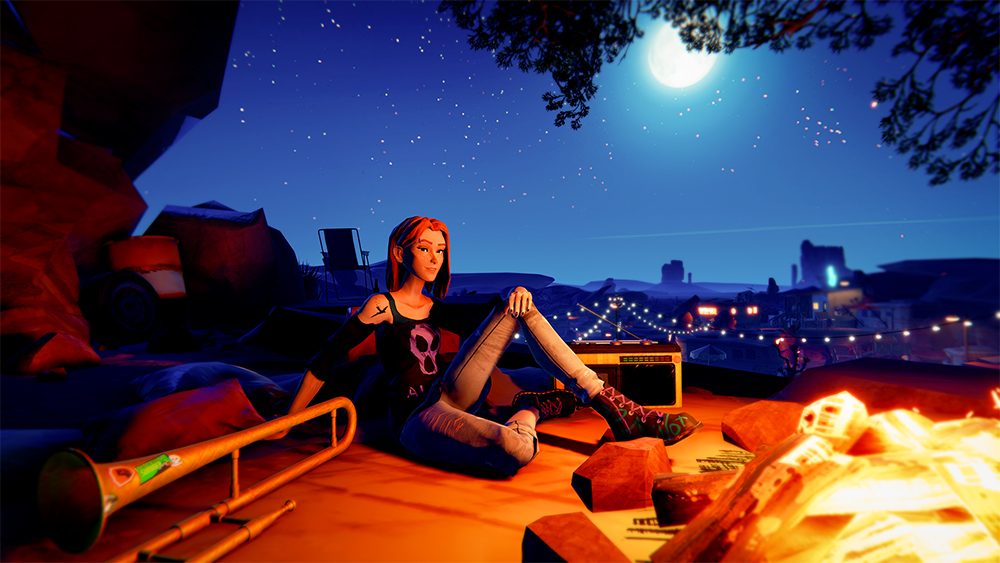 “We don’t have a totally defined vision of things when we start a project at DigixArt. We gather a lot of ideas with the whole team, we let the chaos exist for a period, and then progressively narrow it down to something tangible – the coherency is getting there step by step. It’s like a puzzle that you assemble, not knowing what it will look like, but knowing if you want to make a poppies field or a Greece Cyclades island at least.”
“We don’t have a totally defined vision of things when we start a project at DigixArt. We gather a lot of ideas with the whole team, we let the chaos exist for a period, and then progressively narrow it down to something tangible – the coherency is getting there step by step. It’s like a puzzle that you assemble, not knowing what it will look like, but knowing if you want to make a poppies field or a Greece Cyclades island at least.”
The uniqueness of Road 96 generated a strong and very positive response, largely thanks to its narrative design and characters. When asked what he’d like to say to DigixArt’s current and future fans, all Fanise could express was gratitude:
“Oh, there are so many things I’d like to say to our fans, first is a huge thank you, our community is wonderful, positive and respectful, it’s a pleasure to work on the future with them. And we are really impatient to see their reaction to the game coming to new consoles.”
With the reception and popularity of Road 96, the future certainly looks bright for DigixArt, but Fanise remains coy with giving any details, other than to say new things will be coming:
“I’d like so much to talk about the future, but it’s too soon, it’s just so exciting, now that we joined Ravenscourt/Koch Media, we can make many dreams a reality, even big ones.”
‘Road 96’ is out now on PC, Nintendo Switch, PlayStation and Xbox









